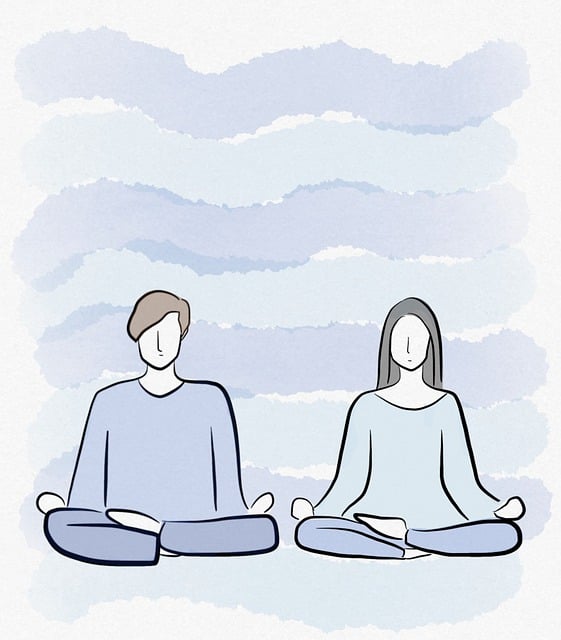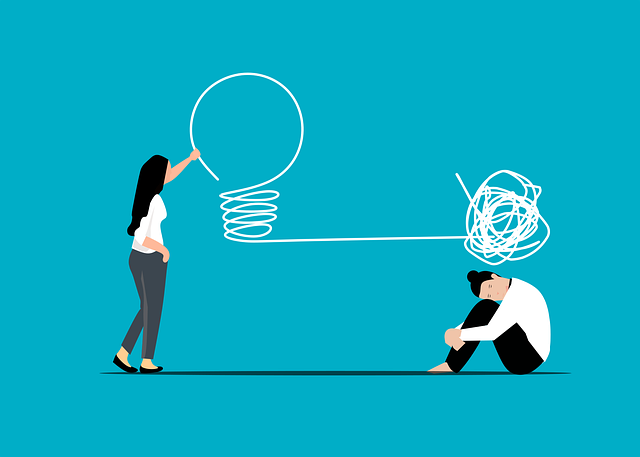Arvada Blended Families Therapy leverages mindfulness meditation as a powerful tool to help families manage complex step-relationships, stress, and communication challenges. By creating dedicated, calming spaces with soft lighting, soothing scents, and personal items, the therapy promotes present-moment awareness, emotional understanding, and mental health improvements. Regular, short mindfulness sessions (starting at 10 minutes) integrated into daily routines, such as meals or bedtimes, strengthen family bonds and build resilience, fostering open dialogue and conflict resolution skills.
“Discover the transformative power of mindfulness meditation for Arvada blended families. This comprehensive guide explores how this ancient practice can bring harmony and balance to modern family dynamics. Learn how creating a supportive environment and integrating meditation into daily routines can strengthen relationships and reduce stress. With practical tips tailored for busy families, you’ll unlock strategies to enhance mental well-being and foster resilient bonds, ensuring a more peaceful and connected home life.”
- Understanding Mindfulness Meditation for Blended Families
- Creating a Supportive Environment for Practice
- Incorporating Meditation into Daily Routines
Understanding Mindfulness Meditation for Blended Families

Mindfulness meditation is a valuable practice for blended families looking to enhance their emotional well-being and strengthen connections. In an Arvada Blended Families Therapy setting, this ancient technique offers a path to navigate the complexities of step-relationships. By fostering present-moment awareness, individuals can better manage stress, improve communication, and cultivate deeper understanding within the family unit.
The practice involves training the mind to focus on the here and now, accepting thoughts and feelings without judgment. This process encourages family members to become more attuned to their own emotions and those of others, fostering empathy and patience. In a blended family context, where step-parents, children from previous relationships, and sometimes new partners come together, mindfulness meditation provides a tool for navigating potential challenges related to adjustment, communication, and co-parenting. Incorporating practices like breathing exercises and body scans can create shared moments of calm, allowing the family to connect on a deeper level while promoting mental health through structured Mental Health Education Programs Design. Crisis Intervention Guidance and Healthcare Provider Cultural Competency Training can also benefit from mindfulness, as it enhances the ability to respond with clarity and compassion during stressful situations.
Creating a Supportive Environment for Practice

Creating a supportive environment is key to fostering an effective mindfulness meditation practice, especially for those navigating life’s complexities, such as blended families. At Arvada Blended Families Therapy, we understand that establishing a dedicated space can significantly impact one’s mental health and well-being. A quiet, comfortable room free from distractions allows individuals to focus on their breath and thoughts without interruption. Consider incorporating elements like soft lighting, soothing scents, and perhaps a few personal items that bring calmness and joy. This personalized space becomes a sanctuary where one can regularly practice mindfulness, fostering mental resilience and improved communication strategies within the family unit.
The environment plays a crucial role in supporting not just meditation but also the overall Mental Health Education Programs Design. By creating an ambiance conducive to reflection and peace, individuals are better equipped to employ Conflict Resolution Techniques when faced with challenges. A peaceful setting encourages open dialogue, empathy, and understanding, all of which are essential for resolving conflicts within blended families harmoniously.
Incorporating Meditation into Daily Routines

Incorporating meditation into your daily routine can be a transformative step for individuals and families alike, especially those seeking support from Arvada Blended Families Therapy. Starting small is key; dedicate just 10 minutes each morning or evening to quiet reflection. Consistency is more important than duration, so aim to make it a non-negotiable part of your Self-Care Routine Development for Better Mental Health. With time, you’ll find it easier to navigate life’s stresses with a calmer mind.
For blended families, creating shared moments of mindfulness can strengthen bonds and foster positive Thinking. Consider incorporating guided meditations or mindfulness exercises during meals or before bed as a family activity. Regular practice can help everyone involved manage emotions, improve communication, and cultivate resilience, thereby enhancing overall well-being, especially when navigating complex familial dynamics. Remember, every small step towards mental health awareness is valuable, and the Risk Assessment for Mental Health Professionals can provide guidance for those offering support in this area.
Mindfulness meditation, when practiced regularly, can significantly enhance the well-being of blended families in Arvada. By creating a supportive environment and incorporating it into daily routines, parents and children alike can cultivate a sense of calm and presence, fostering healthier relationships and improving overall family dynamics. This simple yet powerful practice has the potential to revolutionize family interactions and create lasting positive changes for all involved.














